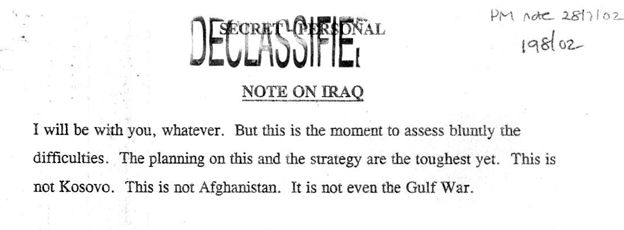In my last updating, I also said that a decision to cooperate on substance was indispensable in order to bring, through inspection, the disarmament task to completion and to set the monitoring system on a firm course. Such cooperation, as I have noted, requires more than the opening of doors. In the words of resolution 1441 (2002) - it requires immediate, unconditional and active efforts by Iraq to resolve existing questions of disarmament - either by presenting remaining proscribed items and programmes for elimination or by presenting convincing evidence that they have been eliminated. In the current situation, one would expect Iraq to be eager to comply. While we were in Baghdad, we met a delegation from the Government of South Africa. It was there to explain how South Africa gained the confidence of the world in its dismantling of the nuclear weapons programme, by a wholehearted cooperation over two years with IAEA inspectors. I have just learned that Iraq has accepted an offer by South Africa to send a group of experts for further talks.
How much, if any, is left of Iraq's weapons of mass destruction and related proscribed items and programmes? So far, UNMOVIC has not found any such weapons, only a small number of empty chemical munitions, which should have been declared and destroyed. Another matter - and one of great significance - is that many proscribed weapons and items are not accounted for. To take an example, a document, which Iraq provided, suggested to us that some 1,000 tonnes of chemical agent were "unaccounted for". One must not jump to the conclusion that they exist. However, that possibility is also not excluded. If they exist, they should be presented for destruction. If they do not exist, credible evidence to that effect should be presented.
We are fully aware that many governmental intelligence organizations are convinced and assert that proscribed weapons, items and programmes continue to exist. The US Secretary of State presented material in support of this conclusion. Governments have many sources of information that are not available to inspectors. Inspectors, for their part, must base their reports only on evidence, which they can, themselves, examine and present publicly. Without evidence, confidence cannot arise.



